#Black Mothers Health
Text
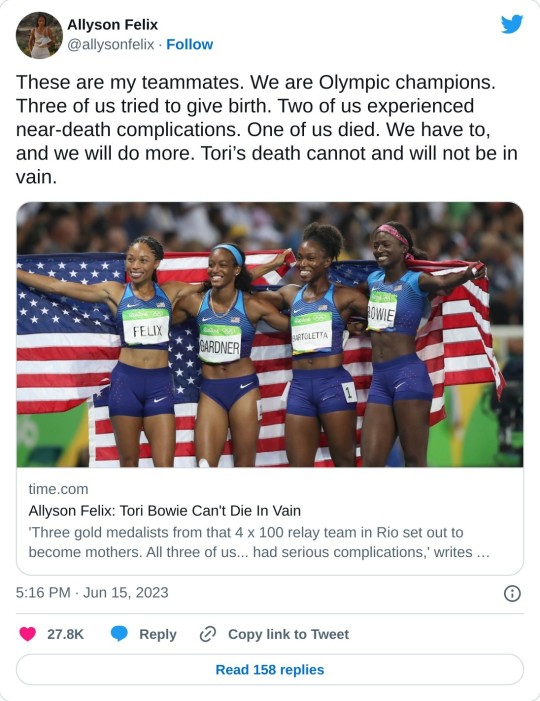
My former U.S. Track and Field teammate Tori Bowie, who was found dead in her home in Florida on May 2, of complications related to childbirth at 8 months pregnant, was a beautiful runner. She was effortless. At the Rio Olympics, I ran the second leg of the 4 x 100 relay. Tori was the anchor. When she got the baton, I remember thinking, “it’s over.” She just accelerated. When she crossed the finish line, I couldn’t wait to run over to her to celebrate. It was her first, and only, Olympic gold medal.
She also picked up a silver (in the 100-m) and bronze (200-m) in Brazil. The next year, at the 2017 World Championships in London, Tori won the 100-m title, earning the title of “world’s fastest woman.” Tori started out as a long jumper. So seeing her thrive as a sprinter was a huge deal. She was just such a bright light, and people were getting to see that.
Tori grew up in Mississippi and had this huge Southern accent. She didn’t take herself too seriously. You felt this sense of ease when you were around her. I last saw her in early 2021, in San Diego, where she was training. She gave me the biggest hug; something about her spirit was just very, very sweet. I felt her sweetness come over me that day.
Tori was 32 when she died. According to the autopsy, possible complications contributing to Bowie’s death included respiratory distress and eclampsia—seizures brought on by preeclampsia, a high blood pressure disorder that can occur during pregnancy. I developed preeclampsia during my pregnancy with my daughter Camryn, who was born in November 2018. The doctors sent me to the hospital, where I would deliver Camryn during an emergency C-section, at 32 weeks. I was unsure if I was going to make it. If I was ever going to hold my precious daughter.
Like so many Black women, I was unaware of the risks I faced while pregnant. According to the CDC, in 2021 the maternal mortality rate for Black women was 2.6 times the rate for white women. About five days before I gave birth to Camryn, I was having Thanksgiving dinner with my family. I mentioned that my feet were swollen. As we went around the table, the women shared their experiences during pregnancy. My cousin said she also had swollen feet. My mom didn’t. Not once did someone say, ‘oh, well, that’s one of the indicators of preeclampsia.’ None of us knew. When I became pregnant, my doctor didn’t sit me down and tell me, ‘these are things that you should look for in your pregnancy, because you are at a greater risk to experience these complications.’
That needs to change, now, especially in light of Tori’s tragic passing. Awareness is huge. Serena Williams had near-death complications during her pregnancy. Beyoncé developed preeclampsia. I hate that it takes Tori’s situation to put this back on the map and to get people to pay attention to it. But oftentimes, we need that wake-up call.
The medical community must do its part. There are so many stories of women dying who haven’t been heard. Doctors really need to hear the pain of Black women.
Luckily, there’s hope on several fronts. Congress has introduced the Momnibus Act, a package of 13 bills crafted to eliminate racial disparities in maternal health and improve outcomes across the board. California passed Momnibus legislation back in 2021. These laws make critical investments in areas like housing, nutrition, and transportation for underserved communities. Further, several pharmaceutical companies are making advances on early detection and treatment of preeclampsia.
Three gold medalists from that 4 x 100 relay team in Rio set out to become mothers. All three of us—all Black women—had serious complications. Tianna Madison has shared that she went into labor at 26 weeks and entered the hospital “with my medical advance directive AND my will.” Tori passed away. We’re dealing with a Black Maternal Health crisis. Here you have three Olympic champions, and we’re still at risk.
I would love to have another child. That’s something that I know for sure. But will I be here to raise that child? That’s a very real concern. And that’s a terrifying thing. This is America, in 2023, and Black women are dying while giving birth. It’s absurd.
I’m hopeful that things can get better. I’m hopeful that Tori, who stood on the podium at Rio, gold around her neck and sweetness in her soul, won’t die in vain.
—as told to Sean Gregory
#Tori Bowie#Black Lives Matter#Black Mothers Health#Black Maternal Health#Allyson Felix: Tori Bowie Can't Die In Vain#Black Lives of Children Matter#Black Health Matters
10K notes
·
View notes
Photo
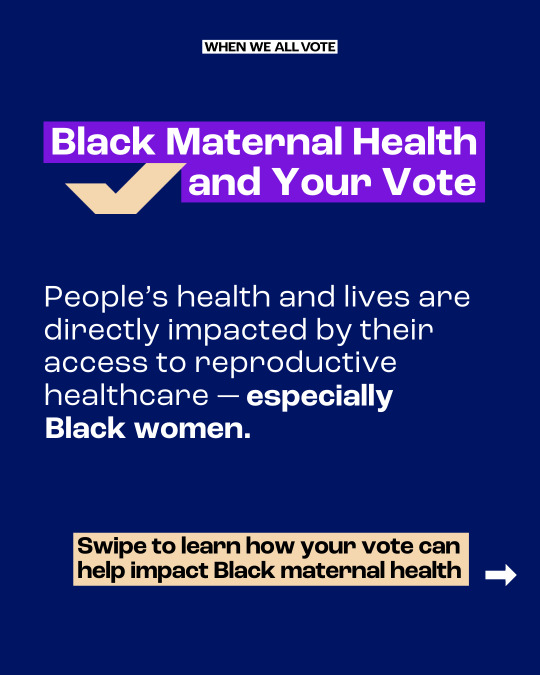
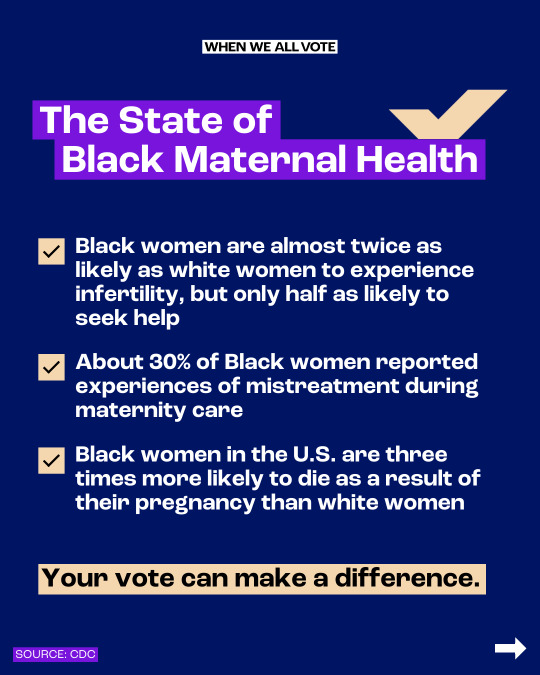

This Black Maternal Health Week, we’re bringing awareness to the staggering rates of Black maternal mortality and morbidity across the country.
Black mothers deserve access to the healthcare they need throughout pregnancy, childbirth, and postpartum.
The people we elect make decisions that impact our access to reproductive healthcare. Make sure you are registered to vote NOW at weall.vote/register. 💜
#black maternal health week#black maternal health#black women#black moms#black mothers#black health#reproductive health#reproductive justice#reproductive freedom#vote#voting#voter#register to vote#ballot#election#elections#black lives matter#blm
16 notes
·
View notes
Text
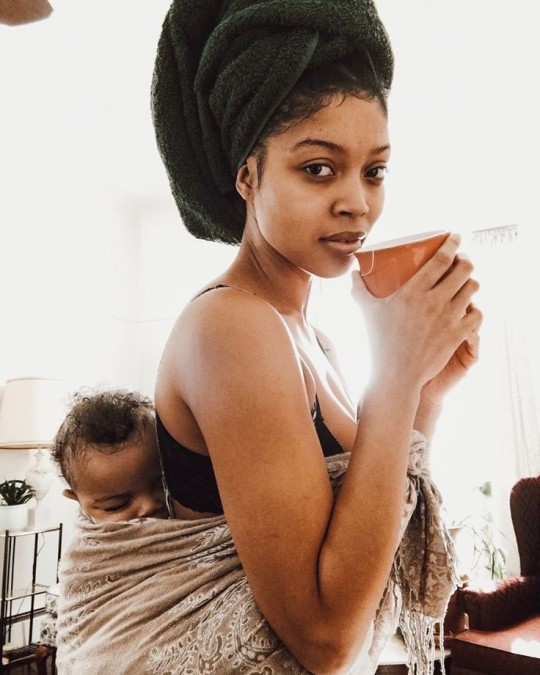
#black parenting#black women#black art#black birth#black mothers#black pregnancy#black girl magic#black man#black love#black motherhood#black maternal health#black mamas matter#black maternal health week#black femininity#black feminism#black lives are precious#black lives are important#BMSC
61 notes
·
View notes
Text
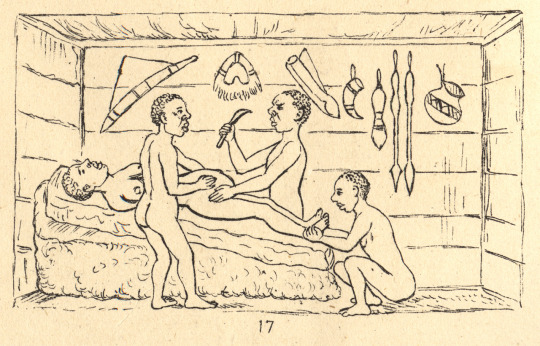
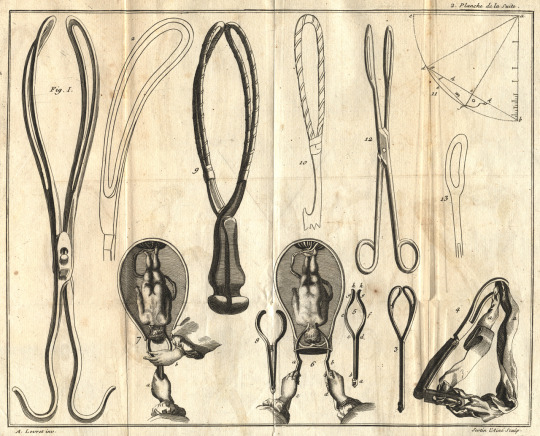
Caesarean section was considered a life-threatening procedure in England that was only to be undertaken in the direst of circumstances and facing the decision on whether to save the life of the mother or baby.
The first successful C-section done in Africa ("success" defined as both surviving) is usually credited to Irish surgeon James Barry (Margaret Ann Bulkley), who performed the operation in Cape Town, South Africa.
This may well not be true due to the quality of surgical techniques in present-day Uganda. Ugandans performed non-fatal C-sections without anesthesia but with supply of banana wine as discovered by a missionary.
In 1879, medical missionary Robert Felkin was visiting indigenous people in the Kingdom of Bunyoro. He later published his observations of obstetric care, which included an account of a C-section that he was permitted to witness.
He had a chance to observe a Caesarian section being performed on a young woman. He observed that in Uganda, C-sections were performed with the intention of saving both the mother and the baby, unlike in Europe where maternal mortality was high.
In the Ugandan c-section, there were three men; one was holding a knife, the other was holding unto the ankles of the young woman and the third stood above her abdomen, supporting either sides with his hands in the course of the surgical procedure.
The surgeon who wielded the knife foremost washed his hands, surgical instruments and the abdomen of the young woman with banana wine for sterilization purposes.
She was given some banana wine to drink in order to make her less sensitive to the surgeon's blades.
The surgeon started the C-section by reciting an incantation.
After the ceremonial prayer, he proceeded with the operation.
In Europe, the concept of surgeons sterilizing their hands before the c-section was very new, and only just starting to catch on. Ultimately, it prevented a lot of deaths once they started doing it.
The Ugandans had mastered the procedure long before there was any interaction with Europeans, as well as with explorers, missionaries and plunderers from other parts of the world, who came to steal and enslave.
•••
Los británicos consideraban que las cesáreas eran procedimientos que ponían en riesgo la vida y que solo tenían que ser realizadas en las peores de las circunstancias y enfrentándose a la decisión de salvar a la madre o al bebé.
La primera cesárea exitosa fue realizada en África (“exitosa” debido a que ambos sobrevivieron) y usualmente se le acredita al cirujano irlandés James Barry (Margaret Ann Bulkley), quién realizó la operación en Ciudad del Cabo, Sudáfrica.
Esto puede que no sea cierto debido a la calidad de las técnicas quirúrgicas de la Uganda actual. Los ugandeses realizaban cesáreas no fatales sin anestesia pero administrando vino hecho de bananas, como fue descubierto por un misionero.
En 1879, un misionero médico llamado Robert Felkin, andaba visitando a la población indígena del Reino de Bunyoro. Luego de eso, público sus observaciones en cuanto a los cuidados obstétricos y esto incluía los acontecimientos de una cesárea que le habían permitido presenciar.
Él tuvo la oportunidad de observar cómo se practicaba una cesárea en una mujer joven. Observó que en Uganda, las cesáreas eran realizadas con la intención de salvar a ambos, madre y bebé, a diferencia de Europa dónde la tasa de mortalidad materna era alta.
En la cesárea ugandesa, habían tres hombres: uno sosteniendo la cuchilla, el otro sosteniendo los tobillos de la mujer y el otro se paraba cerca del abdomen para brindar soporte con los manos hacia cualquiera de los dos lados, durante el curso del procedimiento quirúrgico.
El cirujano que portaba la cuchilla lavaba tanto sus manos, como los instrumentos quirúrgicos y el abdomen de la mujer con vino de banana por propósitos de esterilización.
Se le daba de beber algo de vino hecho de bananas para hacerla menos sensible a las cuchillas del cirujano.
El cirujano comenzaba la cesárea recitando un conjuro.
Después del rezo ceremonial, procedía a realizar la operación.
En Europa, el concepto de que los cirujanos se esterilizaran las manos antes de una cesárea era algo demasiado nuevo y venían dándose cuenta. Al final, una vez que comenzaron a hacerlo, se evitaron muchas muertes.
Los ugandeses habían dominado el procedimiento mucho antes de que tuvieran algún tipo de interacción con los Europeos, así como también con los exploradores, misioneros y saqueadores de otras partes del mundo, quienes llegaron a robar y esclavizar.
#blacklivesmatter#blacklivesalwaysmatter#english#spanish#blackhistory#history#share#read#blackpeoplematter#blackhistorymonth#c section#maternity#maternalmentalhealth#black maternal health#maternal deaths#black mothers#mothers#motherhood#uganda#knowledgeisfree#knowledge#black history#historyfacts#african history#medicine#knowyourhistory#like#follow#blackhistoryyear#black excellence
57 notes
·
View notes
Text

#photography#life#original photographers#black and white photography#mental health#nature#virginia#spider web#spider#natures beauty#morning#early morning#in the country#small town life#taking pictures#appalachia#rural america#my pics#my photos#mother nature
14 notes
·
View notes
Text
non fanfic related post but
i don’t know why anything jennette mccurdy writes about HER OWN MOTHER THAT NONE OF YALL KNEW is up for debate. just because you have a great relationship with your mother doesn’t give you the right to question how someone was treated by theirs.
trigger warning: discussion of black moms, parental trauma and mental health ahead.
My mother wanted children but was a product of generational curses and never got over her failed music career. She raised me in shame based parenting meaning that she didn’t teach me to care for my hair or my body but then would get upset and call me disgusting, and cry over her failure as a mother instead of teaching me to correct the problem. My dad did his best but there are some things he couldn’t teach me that my mother should have.
While my sister became the exact opposite of that to combat the shame, I fell into a pit, I was bullied in school and then went home to bullied by my mother. She would deliberately buy me clothes that were too big for me not because I could eventually grow into them but because this was her image of me.
When she hugged me, she would squeeze parts the parts of my body she didn’t like and when I hit puberty and developed large breasts, I was no longer a child in her eyes, I was a woman that needed to be controlled.
“You make yourself ugly.” She would say.
While my sister found her escape after college, I moved back home I had no money or plan which is no one’s fault but mine. At every opportunity for me to rise, she was there to slam me back to earth. When I wrote my first book and had a few family members buy it, she called me selfish because I wouldn’t give the money to my dad for helping me edit it despite the fact that my dad had turned it down and told me multiple times that I deserved the money because I had done the work.
When my first major significant other died, she left me on the couch crying.
When I was unemployed, she controlled everything that was bought in our household and once I got a job, I bought the things I wanted, the clothes I wanted. She constantly asked for where I got my clothes from and if they came in her size. If she had been anyone else this could have been seen as somewhat sweet and cute but it was another form of control.
A year ago, she had a stroke that left her non verbal for almost a month. My dad fell into a depression, my sister was in a different state, so it was left to me to visit her, me to advocate for her care, me to do complicated paperwork so we wouldn’t lose our house.
She has remained in a rehab facility since her stroke and has told our relatives that we refuse to let her come home and that we put her there to get rid of her. But I still go see her, make sure she has what she needs, brought her a big cake on her birthday.
Because my relationship with my mother is complicated, even my own sister who experienced the same shame doesn’t believe our mother’s behavior growing up was that bad.
To anyone outside of our house, my mother is a sweet and giving woman, the one with the best pasta salad at the church picnic, the first to remember your birthday.
I know those who read this will balk and say, “ you should cut her out of your life!”
The answer to that is the answer to the jennette mccurdy discourse:
Until it is your mother right in front of you, you will not understand. Your lack of understanding however does not forfeit your capacity for compassion nor respect and that is what jennette mccurdy deserves most of all.
165 notes
·
View notes
Text
Burning thw letters I've written for my mother will always bring me peace.
#mother issues#meantal health#regulus black kinnie#regulus arcturus black#regulus black#the marauders#marauders era
51 notes
·
View notes
Text
idk i just really feel like the black brothers were iron deficient
#it would explain so much#pale as fuck? iron deficiency.#mood swings? iron deficiency.#irritability? iron deficiency.#anxiety and paranoia? iron deficiency. (other than their family trauma)#depression? iron deficiency definitely wasn’t helping.#psychological distress? iron deficiency.#other mental health problems and disorders such as ADHD? iron deficiency causes an increased risk in having them.#i mean come on#you know those kids weren’t given proper nutrition#like can you imagine walburga and kreacher with a food pyramid chart?#please. she’d rather let them starve than actually be a MOTHER#the black brothers#sirius black#regulus black#harry potter#the marauders#james & peter & remus & sirius#james potter#remus lupin#marauders#peter pettigrew#wolfstar#jegulus#walburga's a+ parenting
31 notes
·
View notes
Text
"Should a seeker not find a companion who is better or equal, let them resolutely pursue a solitary course; there is no fellowship with the fool." The Buddha
I will never settle.
#black femininity#feminine black women#soft black women#self care#mental health#self motivation#note to self#level up journey#self healing#things ive learned#level up mindset#levelup#lessons learned#self reflection#divine feminine#divine mother feminine
66 notes
·
View notes
Text
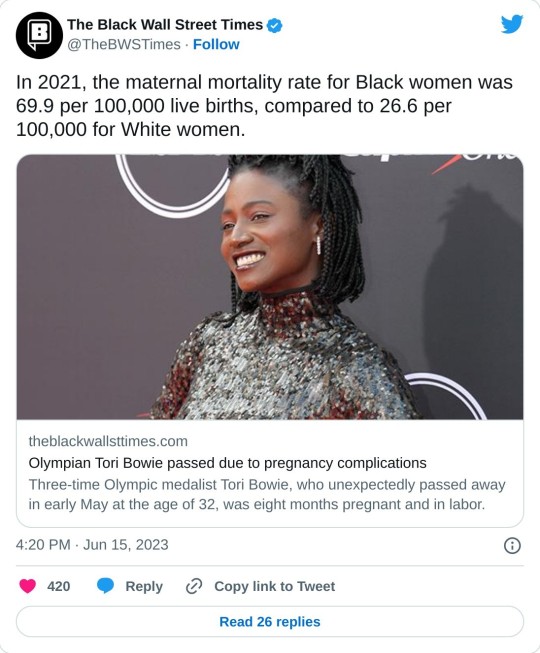
#Tori Bowie#Black Mothers Maternal Crisis#Black Mothers#Black Pregnancy#Health disparities#Black Health Matters#Black Lives Matter#Black Babies Matter#Protect Black Women
130 notes
·
View notes
Text
It’s an older livestream but is resurfacing because of her recent sit-down with VP Harris (that “conversation” made people question why her points seemed so odd in addition to not very much action or solution was provided).
Dr. Jackie Walters…it is absolutely deplorable, dangerous and anti-Black that this sentiment is her actual feelings. She is part of the problem and for it to come from an actual Black (woman) OB-GYN is heinous. It’s scary. Putting more Black mothers at risk with these insane generalizations and stereotypes. (I see some folks saying because she herself has not had children that she wouldn’t know…it should not have to be because you can’t relate with not having children of your own that you somehow can’t be empathetic)!
“A bit more dramatic” and “cry wolf”. I’m heated!
I don’t care if that pregnant soon to be mommy comes to you twice a day for thirty days straight! There is a literal life growing inside of her. You don’t know what her body is experiencing (I mean, yes you do as a physician but it also is very personalized)! You should care for her well-being and her unborn’s well-being at every turn. Ease her concerns by showing compassion and empathizing AND most importantly assuring her that she’s being heard. And these women are selectively choosing you because you are a Black OB-GYN and a woman —assuming they’ll get better care given the horror stories we consistently hear when the physician isn’t Black and isn’t a woman.
The “a bit more dramatic” is probably because of your sentiments! So then consistently never being heard or taken seriously results in Black mothers-to-be having no choice but to be overly expressive in making their voices heard!
We know the stories of other Black pregnant women (non-famous & famous alike). We know the stats. We know the racism Black women receive from health care personnel who are not Black. We know the bias. We know the systemic racism and implicit bias. We know this all and it’s sickening to hear this come from her. Her Anti-Blackness is harmful.
((and taking days off from work during a woman’s pregnancy…wouldn’t that be the best time to use pto?? taking off a day or more is ideal during pregnancy. some jobs are already stressful as it is and showing up to work while also pregnant is double that for expecting mothers. what business is it of yours that she needs to request days off—she earned that))
#Black doctors#Black maternal mortality#Black mothers#Black pregnancy#birthing#Dr Jackie Walters#Jackie Walters#Black pregnancies#Black expecting mothers#infant mortality#health care#health industry#married to medicine
3 notes
·
View notes
Text
instagram
#feminism#prochoice#childfree#cf#pro choice#child free#allmen#all men#antinatalism#donthavehiskids#donothavekids#regretful mothers#motherhood#parenthood#black childfree women#black women#womens reproductive rights#reproductive health#reproductive rights#nokids#regretful parents#Instagram
3 notes
·
View notes
Text
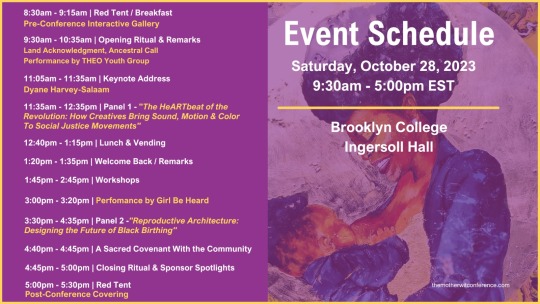
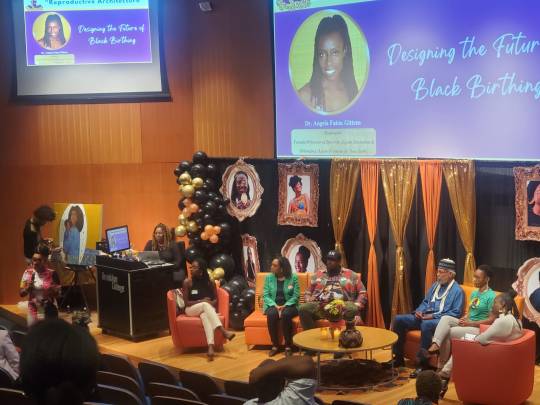
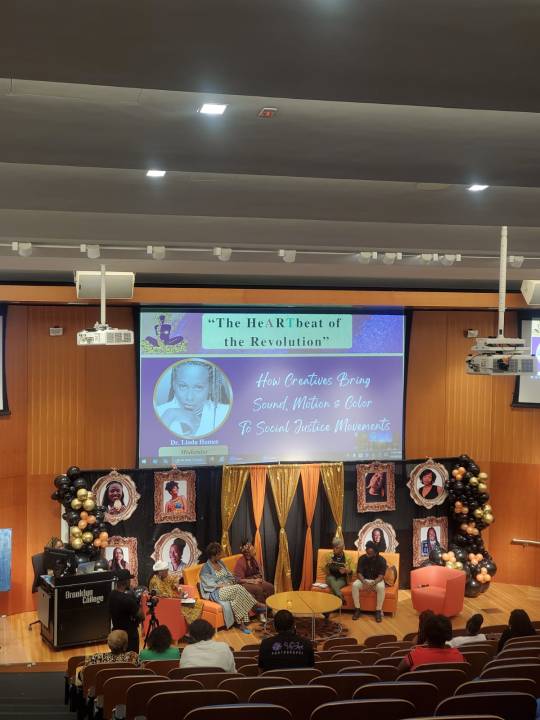
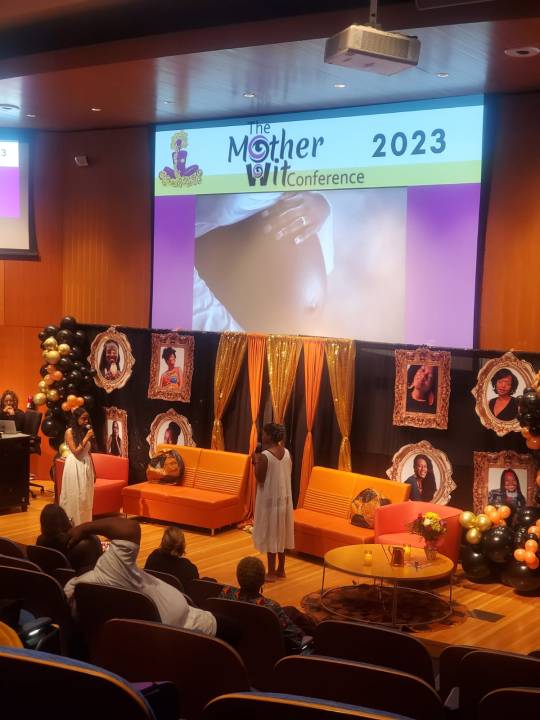
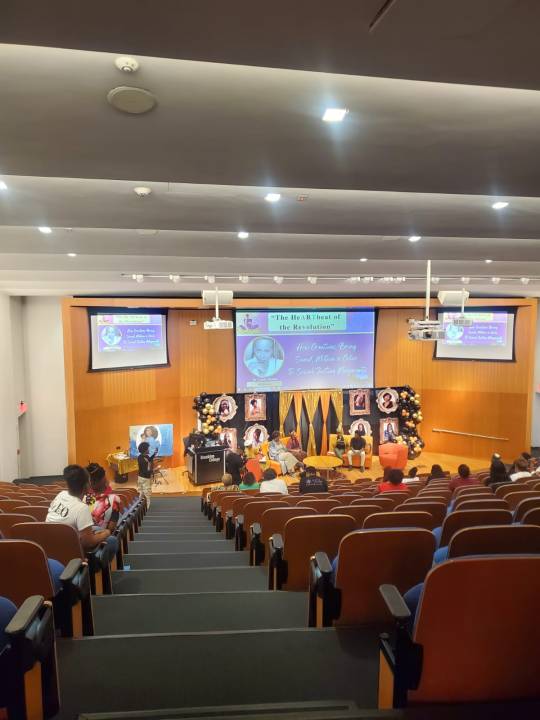
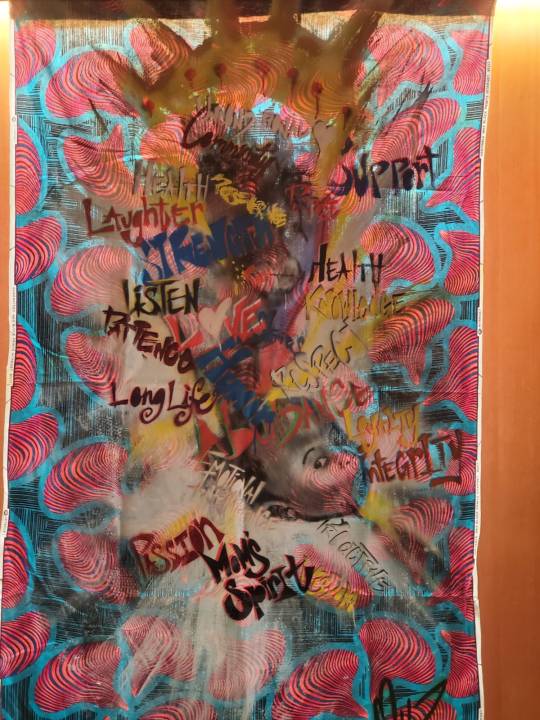
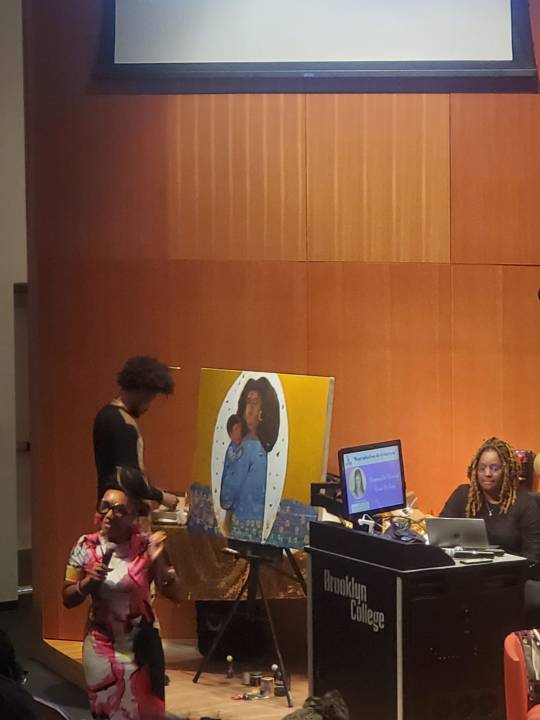
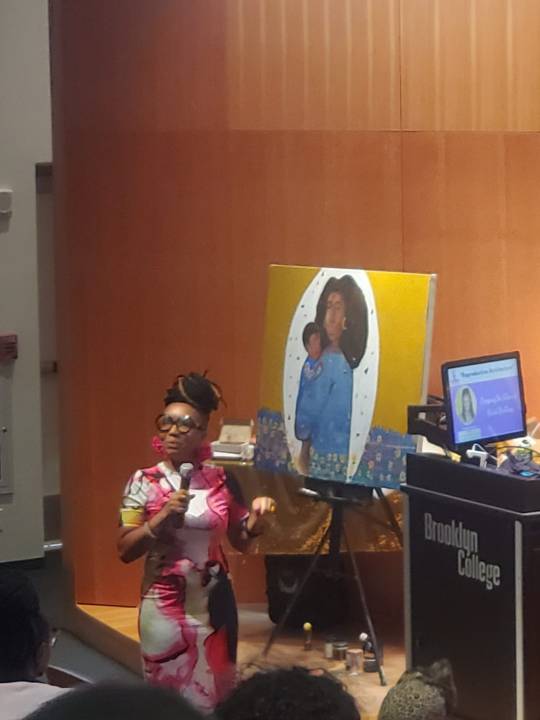
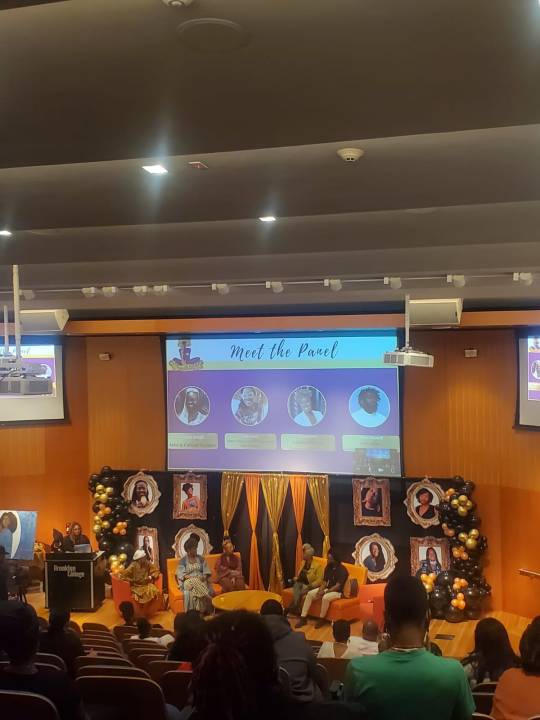
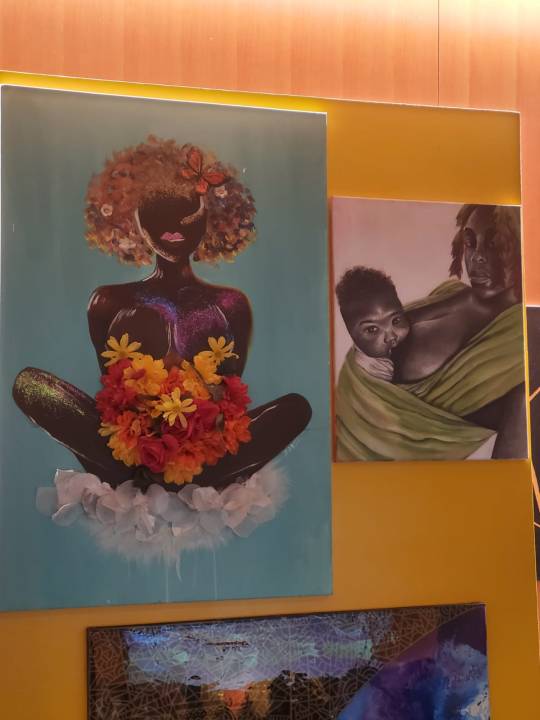
#mother wit conference#the Ariah Foundation#spirit of A Woman#black woman#black men#black family#black maternal health#black fetal health
4 notes
·
View notes
Text

#black parenting#black women#black art#black birth#black mothers#black pregnancy#black girl magic#black love#black fatherhood#black man#black fathers#black babies#black power#black mamas matter#black motherhood#black maternal health#black maternal health week#blackmaternalwellness
22 notes
·
View notes
Text
I need to work on my house more soon or i am literally going to lose my fucking mind. I cant live here forever
#my mother is unstable and childish. and we get along fine 80% of the time bc i know how to not trigger a hissy fit#but when i do watch the fuck out. decided to go car camping last night on a whim and now that im back shes in a royal fucking tear#just a control freak. hates when i go off and do things on my own#meanwhile i am literally just doing everything i possibly can to keep my own mental health stable. a losing battle lately#the loneliness is familiar but its like a permanent black hole in the center of me sucking my sanity into it#i use work + my coworkers as a fix through the week but then i emotionally crash hard on the weekends when im alone#i know how to manage myself by now so i dont spiral like i used to but i cant do that and babysit my fucking parents as well#if i mention finding land to put my house on it sets her off as well. ill be 23 this year id like to get a life at some point before i die#anyways blah blah another vent post. ill normal up on tuesday when i go back to work i prommy
3 notes
·
View notes
Text
Lady Rho Back in Action:
Where have I been?
Embracing Parenthood with Style
Guess who’s back? Yep, it’s yours truly, the music mommy who’s been on a super busy hiatus after welcoming the most adorable bundle of joy into the world. These past two months have been a whirlwind of love, diapers, late nights, and multitasking like a “mom-boss.” A tired boss. 😂 Between caring for my newborn, homeschooling my energetic little munchkins, and…

View On WordPress
#baby#bible#birth#birth process#black family#childbirth#doula#emotional support#homeschool#love#marriage#mother&039;s day#postpartum#Women#women&039;s health#women&039;s history
4 notes
·
View notes